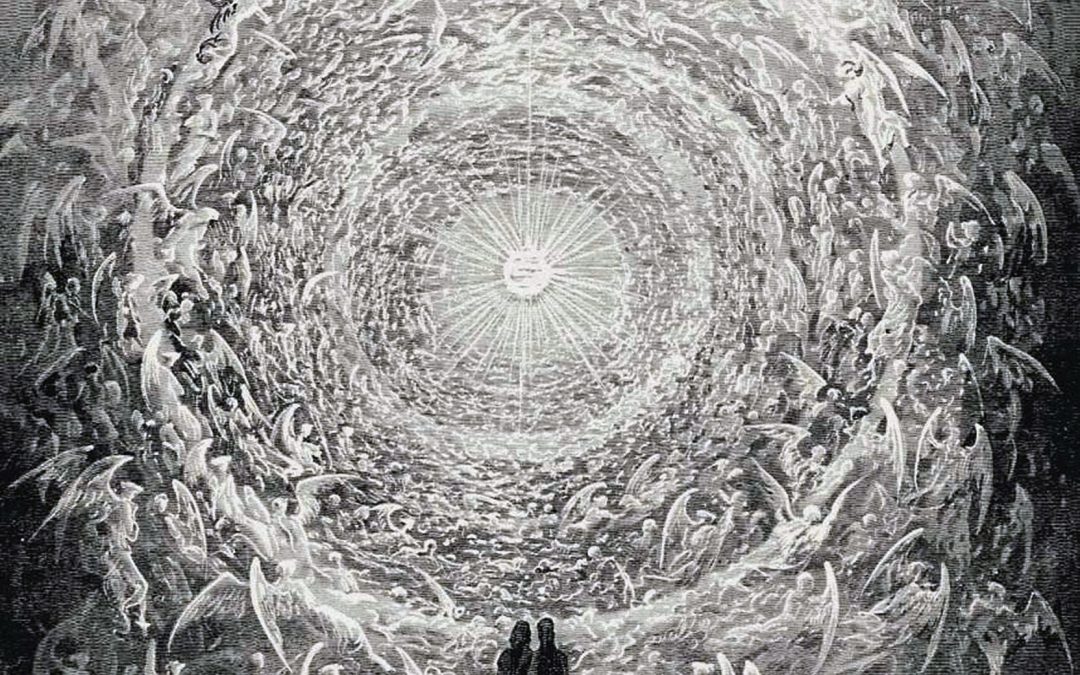The doctrine of divine aseity (self-existence) teaches us that God does not depend upon that which is not God in order to be God. God’s “God-ness” isn’t something that He has, it is something that He is. As such, His divinity, perfections, attributes, etc. are not things that He shares with other beings — as one man may share strength in common with another man. A shared property is something that is possessed in part but not in whole. For example, strength can never entirely belong to a single man, since that would mean no other man could have strength.
This is not the case when it comes to God. What God “has” He has entirely. To put it another way: What God is only God is. This is why God, in Scripture, is said to be “jealous.” He doesn’t share what only He is — that which belongs to Him and Him alone.
Scripture fleshes this out brilliantly. One shining example comes within the context of the second commandment, “For I, the LORD your God, am a jealous God…” (Ex. 20:5) Consider that text along with the following, “For My own sake, for My own sake, I will do it; For how should My name be profaned? And I will not give My glory to another.” (Is. 48:11)
Divine Self-Existence from Isaiah 42:8
The introduction of Isaiah 42:8 reads, “I am the LORD, that is My name…” This is an important point because it invokes the covenant name of God revealed to Moses in the burning bush, “The LORD God of your fathers, the God of Abraham, the God of Isaac, and the God of Jacob, has sent me to you. This is My name forever, and this is My memorial to all generations.” (Ex. 3:15) This name derives from v. 14, the famous, “I AM WHO I AM” designation, which many scholars agree denotes self-existence, i.e. God just is.
The invocation of this covenant name revealing God’s self-existence naturally proceeds to a further implication, “And My glory I will not give to another…” The same point is made in Exodus 20:5, but in different terms, “I, the LORD your God, am a jealous God…” God’s holy jealousy in Scripture is an expression of His self-existent, independent nature — which does not have glory but is glory exclusively. It is not shared with another. God wouldn’t have all the glory if it were shared with other beings. But if God does have all the glory, it follows that it will not be given to anyone or anything else.
Hence, we should not worship anything or anyone other than this God, because to do so is to ascribe divine glory to something or someone other than Him. So, all praise must be directed to Him, “And My glory I will not give to another, Nor My praise to carved images.” This phrase echoes the second commandment, “You shall not make for yourself a carved image… you shall not bow down to them nor serve them.” (Ex. 20:4-5)
The ground of the second commandment is the aseity of God — He is His glory, and He is all the glory. To share it with another would be to subtract from who He is (an impossibility, to be sure). The sinfulness of idolatry, therefore, consists in the impossibility of God’s glory belonging to anything or anyone else. Thus, when we ascribe the glory of God to something other than God, we also violate the 9th commandment in bearing false witness about who God is, i.e. that He shares His glory when in fact He does not.
Holy Jealousy, Self-Existence, & the Divine Identity of Christ
This divine glory, and therefore holy jealousy, is said to belong to Christ, “And the Word became flesh and dwelt among us, and we beheld His glory, the glory as of the only begotten of the Father, full of grace and truth.” (Jn. 1:14) Does this mean that God has violated His rights to exclusive divine glory? Has He begun to share His glory with someone who is not God? Has God rescinded His rule, “My glory I will not give to another”? The short answer is a resounding, no! In light of Isaiah 42:8, the Son’s glory in John 1:14 is an attestation to His divine nature which He has in common with His Father. John does not want us to conclude that God shares His glory with another, but that the Son of God is God Himself.
An appeal to the begottenness of the Son in John 1:14b is an insurance policy to secure his readers from heresy. Far from God sharing His glory with another, the Son is none other than what the Nicene Creed calls “God from God, Light from Light.” The Father, through eternal generation, communicates the fullness of deity in eternally begetting the only begotten Son.
Isaiah 42:8 and the exclusive glory of God — God is glory, and only God is this glory — when paired with John 1:14 presses us to conclude that Christ is indeed YHWH, the same God who revealed Himself to Moses in the burning bush, (Ex. 3:14-15) the same God who issued the second commandment, (Ex. 20:4-6), and the same God who became us to redeem us. (Jn. 1:1-14)
When we think of divine jealousy and the exclusivity of the divine glory, we should be drawn to consider the divine majesty of Christ, the wonder of His incarnation, and the great privilege we have in redemption

